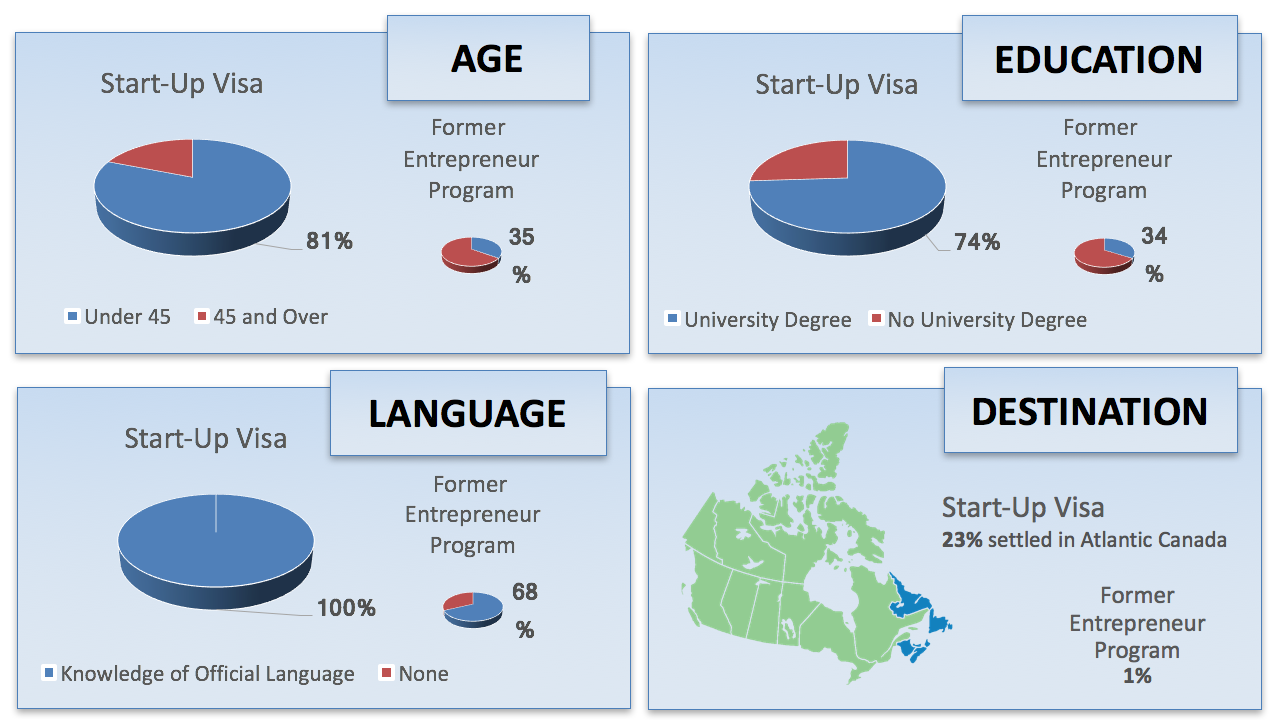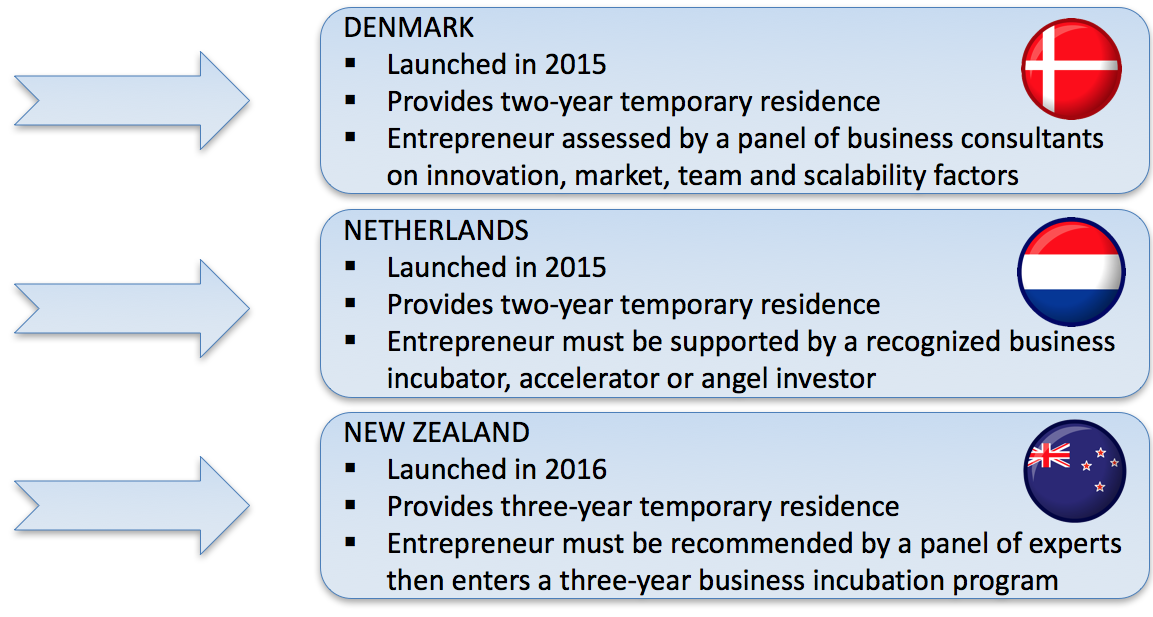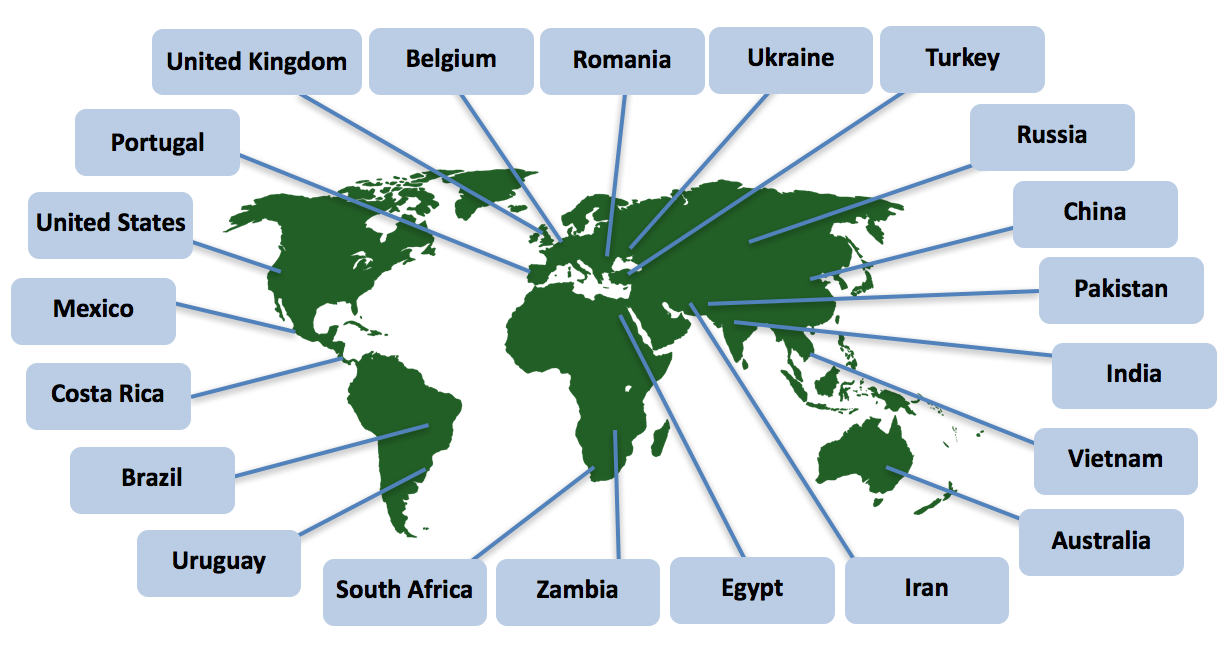The following is excerpted from the IRCC presentation given on Start-Up Visas.
Program Summary:
- Overview: Launched as a five-year pilot in April 2013 to test a new approach to business immigration; became a permanent program in April 2018
- Focus: Targets entrepreneurs with potential to build innovative businesses in Canada that create jobs and compete globally in high-growth sectors
- Scope: Small-volume program emphasizing the quality of business ideas over quantity
- Intended Outcome: Innovative entrepreneurs actively pursue business ventures in Canada, contributing to the innovation needs of the Canadian economy
Context
- Part of an effort to revamp business immigration programs in favour of smaller-scale, higher-value programs that focus on attracting innovative business people
- Replaces the former Entrepreneur Program (a larger-volume program first launched in the 1970s/80s) that was cancelled in 2014
- Supports the Government of Canada’s commitments to advancing:
- innovation
- economic growth
- global skills attraction
How Start-Up Visa Works
- Built on a model of partnership with the private sector

Results to Date: Relevance and Program Performance
- The Government conducted an evaluation of the program in 2016
Relevance:
- Key informants indicated that:
- Without Start-Up Visa, Canada would lose opportunities to attract global talent
- Start-Up Visa helps brand Canada as a country open for business
- They could not identify an alternative approach that would better attract innovative entrepreneurs to Canada than Start-Up Visa
Program Performance:
- The program is meeting its intended outcomes
- Entrepreneurs are pursuing innovative business ventures in Canada (especially compared to previous Entrepreneur Program)
- Start-Up Visa is much more cost effective than previous Entrepreneur Program, where visa officers assessed business proposals
- Pilot cost ≈$644K on average per year (vs. ≈$5.2M under old program)
- Applications are processed faster
- On average, 80% of applications were processed in 5.3 months during the pilot (vs. 69-81 months under old program)
Results to Date: Program Demand
-
- Not intended to be a high-volume program, but application intake has risen steadily each year as designated entities become more familiar with the program
- As of January 1, 2018, we have received:
- 277 permanent resident applications
- 65 commitments for entrepreneurs who have not yet submitted a permanent resident application
- Of these, 170 have been approved, 34 have been refused or withdrawn and the rest are in process
- Demand is not driven by any particular region — applications have come from a wide range of countries (see Annex A)
Results to Date: Entrepreneur Profile

International Impact
- Start-Up Visa has become a model for other countries to follow
- Since its launch in 2013, several countries have implemented similar programs – but none offer up-front permanent residence like Canada

Current Status
- As of April 2018, Start-Up Visa is now a permanent program
- The permanent program is similar to the pilot but includes some new provisions to uphold program integrity and prevent immigration fraud:
- requirement that an applicant provide active and ongoing management of the business from within Canada
- requirement that an essential part of the business’ operations be conducted in Canada
- provision that designated entities may not charge applicants a fee to review their business proposals
- authority for officers to conduct inspections
- To further enhance the program, Budget 2018 provided funding to ensure that applicants, private-sector partners and immigration officials are able to process applications electronically and more efficiently
Annex A: Selected Applicant Source Countries




